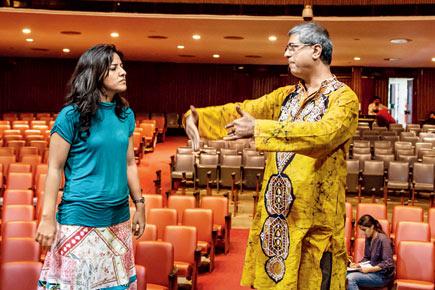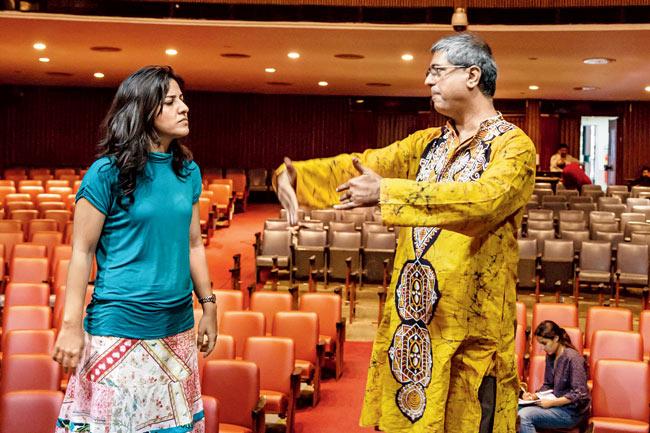Playwright-director Mahesh Dattani’s new book, Me and My Plays entails two of his recent plays along with his thoughts on Indian theatre. Kanika Sharma engaged in a tete-a-tete with the Sahitya Akademi Award winner to read between the chapters

Your candour and self-awareness regarding Indian play writing in English is refreshing. What is your take on your plays and Indian theatre in English? Has it changed since you started writing in the late 1980s?
Indian-English writing is less self-conscious than it was a generation earlier. In drama, it is interesting to see young theatre groups look at language the way it is spoken and not so much as an artifice. Of course, there is a danger of putting labels on it such as Hinglish or Tanglish. I don’t think those labels serve any purpose. Language is a living thing and it is vibrant in the way it is spoken just as it can be vibrant the way it is imagined. To me language continues to be an art form more and more. I started off by limiting my focus on English- speaking Indian only but I can use the language with some skill to use it more as the language of creation. For instance, in Morning Raga and in my play Seven Steps Around the Fire, the language of the characters is not English, but the language of the film or play is.
ADVERTISEMENT

Mahesh Dattani (right) with Sonal Joshi during ar rehearsal for his play, The Big Fat City
How has Mumbai influenced your writing in terms of characters and plot?
My latest play The Big Fat City does encompass some facets of this unwieldy city. About twenty years ago, I had written a play set in Mumbai called On A Muggy Night in Mumbai. The two plays are different in the way they look at the city. But it is not in the setting alone that Mumbai has influenced me. I have succumbed to the charm of the city and embraced it as my home, yet I will always be an outsider. For a writer that is a very interesting location — being home and yet outside.
In Me and My Plays, you hint at how Indian theatre is changing — “Theatre too is moving out of the proscenium and speaking more intimately with its audience”. Tell us more.
Definitions of theatre have changed. There are studio performances. As the city grows and conventional theatre spaces shrink or are no longer affordable, the more innovative theatre groups will find alternate spaces. It is not just the space alone but in content too, the distance between the content and the audience is shrinking so more and more work directly reflects the lives of its audiences.
What is the kind of theatre we have in the cities?
City theatre is a new kind of theatre. It has no roots or traditions. It has not sprung from any kind of school of thinking. Earlier, there were city groups like Indian People’s Theatre Association, Indian National Theatre and Awishkar that created some kind of a movement. Today, we have an archipelago of types of theatre, new and developing. City theatre in India is still a promise though, not a reality. Modern Indian theatre is yet to arrive. That doesn’t mean it is not an exciting time. For any creative person, what is brewing is more important than what
is served.
Me and My Plays, Mahesh Dattani, Penguin Books, R299. Available at leading bookstores.
 Subscribe today by clicking the link and stay updated with the latest news!" Click here!
Subscribe today by clicking the link and stay updated with the latest news!" Click here!






